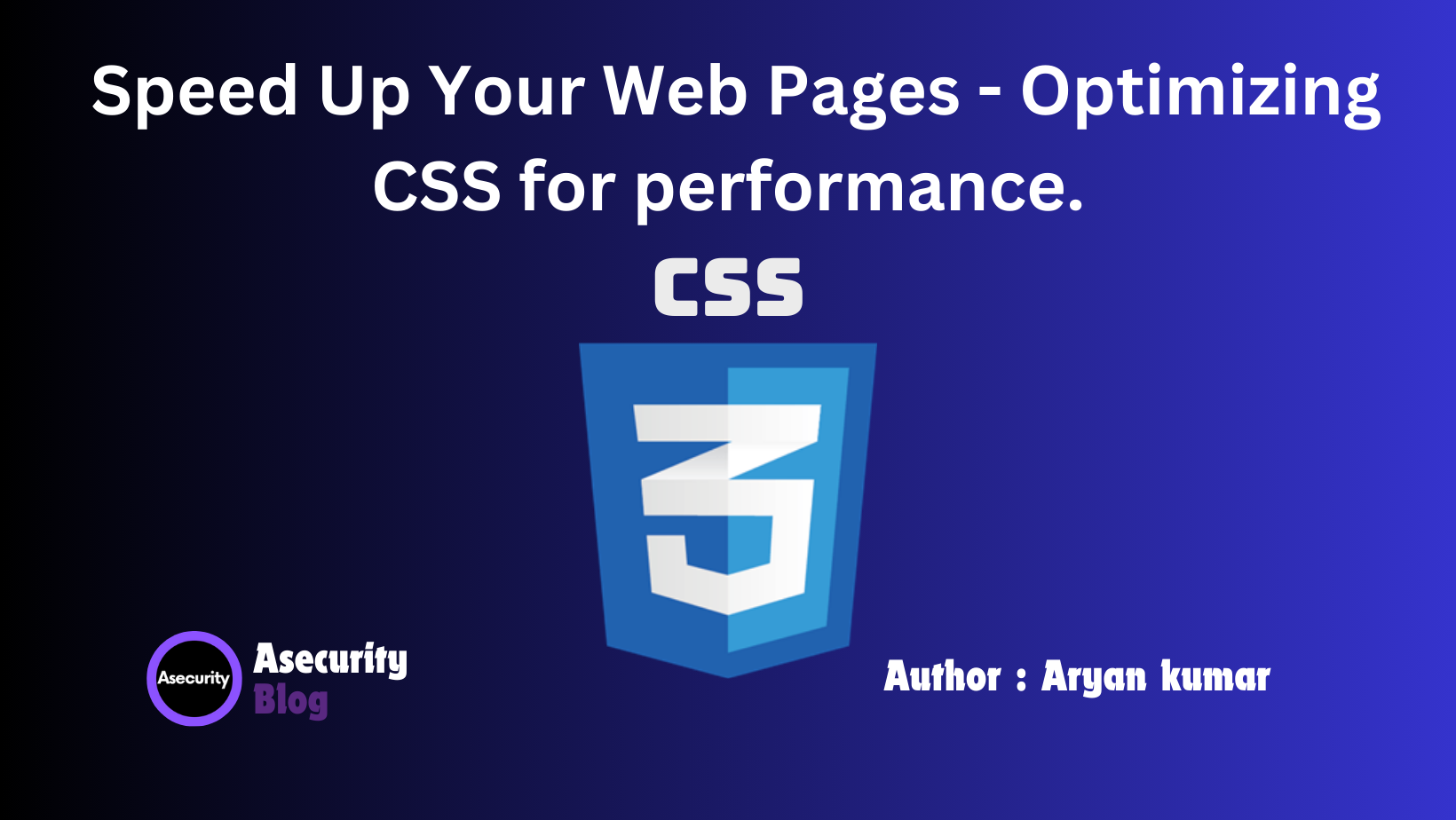Optimizing CSS for Performance: Speed Up Your Web Pages - Optimizing CSS for performance.

As your web projects grow, so does the importance of optimizing your CSS for performance. Efficient CSS not only improves the loading speed of your web pages but also enhances user experience and SEO rankings. In this blog, we will explore various techniques and best practices for optimizing your CSS to ensure your web pages load quickly and run smoothly.
1. Minimize CSS File Size
One of the easiest ways to optimize your CSS is to reduce its file size. Large CSS files can slow down your web page load times, especially on slower networks. Here are a few techniques to minimize your CSS file size:
- Remove Unused CSS: Over time, stylesheets can accumulate unused CSS rules. Tools like PurgeCSS or UnCSS can help you identify and remove these unused styles.
- Minify CSS: Minification reduces the size of your CSS files by removing unnecessary whitespace, comments, and characters. You can use tools like CSSNano or CleanCSS to minify your CSS.
2. Use CSS Shorthands
CSS shorthands allow you to combine multiple CSS properties into a single declaration. This not only reduces the number of lines in your CSS file but also makes your code cleaner and easier to read. For example, instead of writing:
margin-top: 10px;
margin-right: 20px;
margin-bottom: 10px;
margin-left: 20px;
You can use the shorthand:
margin: 10px 20px;
3. Avoid CSS @import
While the @import rule allows you to import stylesheets into other stylesheets, it can add additional HTTP requests, slowing down your page load time. Instead of using @import, consider linking all necessary stylesheets directly in your HTML <head> tag.
4. Reduce the Use of Complex Selectors
Complex CSS selectors can negatively impact performance because the browser must evaluate them against every element in the DOM. To improve performance, use simple, efficient selectors and avoid overly specific or deeply nested selectors. For example, instead of using:
div > ul > li > a { color: blue; }
You can simplify it to:
a { color: blue; }
Ensure that your selectors are as specific as necessary, but not more so.
5. Utilize CSS Preprocessors
CSS preprocessors like Sass, LESS, or Stylus offer powerful features that help you write more maintainable and optimized CSS. They provide functionalities like variables, nesting, and mixins, which can help you write DRY (Don't Repeat Yourself) code. This reduces redundancy and makes your CSS files smaller and more efficient.
6. Optimize CSS Delivery
To improve the rendering speed of your web pages, consider optimizing the delivery of your CSS. Here are a few strategies:
- Inline Critical CSS: For critical CSS that is needed to render the above-the-fold content, consider inlining it directly in the HTML document. This reduces the time the browser takes to fetch external stylesheets, speeding up the initial page load.
- Load CSS Asynchronously: Non-critical CSS files can be loaded asynchronously to prevent them from blocking the rendering of the page. You can use the
mediaattribute or JavaScript to load stylesheets asynchronously.
7. Use CSS Compression Tools
Compression tools like Gzip or Brotli can reduce the size of your CSS files even further by compressing them before sending them to the browser. Most modern web servers support these compression methods, which can significantly improve page load times.
8. Leverage Browser Caching
Caching allows the browser to store a copy of your CSS files locally, so they don't need to be re-downloaded on subsequent visits. Set appropriate cache headers for your CSS files to leverage browser caching effectively. This can drastically reduce the amount of time it takes for your pages to load for returning visitors.
9. Implement a CSS Framework Wisely
While CSS frameworks like Bootstrap or Foundation provide a solid foundation for web development, they also come with a lot of CSS that may not be necessary for your project. If you choose to use a CSS framework, consider customizing it to include only the components and styles you need. This reduces the amount of unused CSS and improves performance.
10. Regularly Review and Refactor Your CSS
Regularly reviewing and refactoring your CSS is essential to maintaining optimal performance. As your project evolves, it's easy for CSS to become bloated or disorganized. Periodic reviews help you identify and eliminate unnecessary or redundant styles, keeping your CSS clean and efficient.
Conclusion
Optimizing CSS for performance is a crucial step in creating fast, efficient, and user-friendly websites. By minimizing CSS file size, using shorthands, avoiding complex selectors, and leveraging tools like preprocessors and compression, you can significantly improve the performance of your web pages. Remember to regularly review and refactor your CSS to keep it optimized and maintain a smooth, fast user experience. Start implementing these techniques today, and watch your website's performance soar!
Happy coding!
Author: Aryan Kumar is a web developer specializing in HTML, CSS, and JavaScript, working at Asecurity. Contact here (Instagram) : @aryan_geek .
#webdevelopment #html #css #javascript

